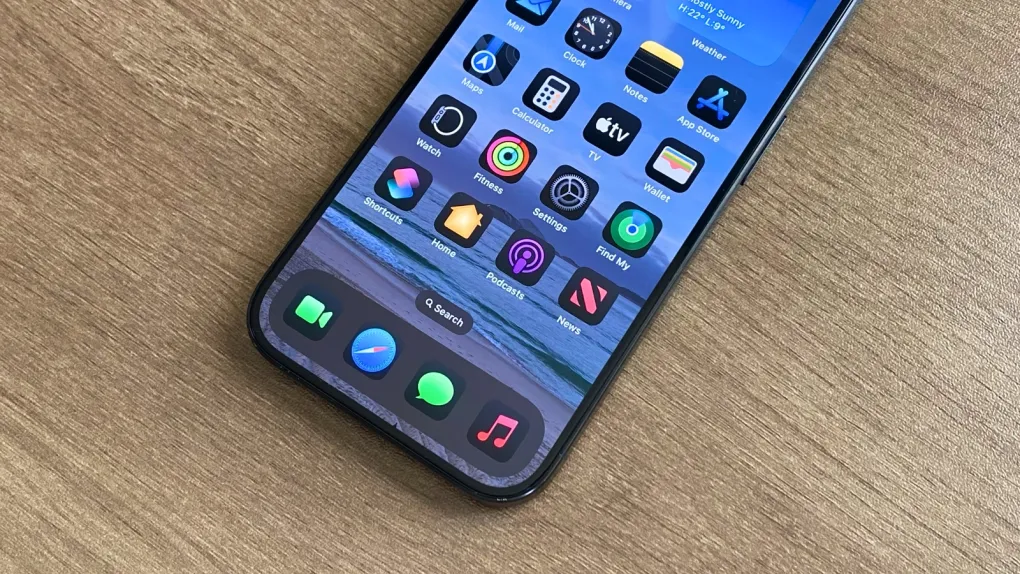

iOS 18 RC Review – What is The New?
Apple’s innovation in the health and fitness sector is no secret, but the iOS 18 Release Candidate (RC) has revealed an exciting new development: Apple is testing advanced health sensors in its wireless earbuds. This marks a significant leap forward in personal health monitoring, as Apple aims to integrate more health-centric features into everyday devices, making health tracking seamless and highly accessible. This article will delve into how iOS 18 RC confirms these tests, the potential health benefits, and how these sensors could change the game for personal wellness.
iOS 18 RC Reveals Health Sensor Integration in Apple Earbuds
The iOS 18 RC code has provided strong indications that Apple is preparing to introduce new health sensors in its upcoming wireless earbuds, such as the AirPods lineup. Several developers and tech insiders who have examined the iOS 18 RC code have discovered references to specific health features, including the potential for measuring heart rate, temperature, and even blood oxygen levels.
These sensors, long-rumored in the tech community, have been a part of Apple’s ongoing strategy to expand its health ecosystem. While the Apple Watch is already a powerful health tool, the integration of these sensors into AirPods would mean users can track health metrics with more flexibility and accuracy, without being tied to a smartwatch.
The Health Revolution in Earbuds: What the Sensors Can Track
Apple has always been on the cutting edge of wearable technology, and adding health sensors to wireless earbuds could dramatically enhance personal health monitoring. Here’s what the new sensors might offer:
- Heart Rate Monitoring: Similar to the Apple Watch, these earbuds can track your heart rate in real-time, providing data on resting heart rate, exercise heart rate, and trends over time.
- Blood Oxygen Measurement: Monitoring oxygen saturation levels (SpO2) could help detect potential health issues such as respiratory problems or sleep apnea. Integrating this feature into AirPods would allow users to track their oxygen levels more conveniently, especially during workouts or while sleeping.
- Body Temperature Tracking: Keeping an eye on body temperature fluctuations could provide early indications of illnesses, such as fevers or infections. This could be particularly useful in detecting early symptoms of viral infections.
- Noise Exposure Levels: Current AirPods models already feature noise exposure tracking, but Apple could enhance this feature with more precise data about how long and how much exposure to loud noises users are experiencing. This could play a role in preventing long-term hearing damage.
- Posture and Activity Monitoring: By using motion sensors, AirPods could monitor head movements and posture. This feature could provide reminders to adjust sitting posture or alert users when they’ve been stationary for too long, making it an excellent addition to overall wellness.
Why Earbuds? The Perfect Companion for Health Tracking
Wireless earbuds are worn more frequently than many other wearable devices, making them an ideal candidate for health sensor integration. Most users wear their AirPods for several hours a day, whether for music, calls, or simply to block out ambient noise. By utilizing this daily habit, Apple could provide consistent, passive health monitoring without requiring users to put on or interact with additional devices.
This level of passive health tracking could lead to more accurate and comprehensive health data. For example, users would not have to rely solely on their Apple Watch or iPhone to track fitness and health metrics during exercise or daily activities. The earbuds would continuously track vital signs, providing a seamless health-monitoring experience.
The Impact on Apple’s Health Ecosystem
With these new health sensors, Apple is further cementing its place in the digital health space. The Apple Health ecosystem, which includes the Apple Watch, Health app, and Fitness+ service, is already a leader in providing users with insights into their overall well-being. The addition of advanced health tracking features in AirPods will make the Apple ecosystem more comprehensive, offering a multi-device, multi-sensor approach to health monitoring.
The potential to combine data from different sources — such as the Apple Watch, iPhone, and now AirPods — could lead to more personalized insights, helping users manage their health more effectively. For instance, AirPods could provide real-time feedback on heart rate during workouts, while the Apple Watch monitors long-term trends.
Additionally, Apple’s health data is securely stored, encrypted, and shared only with user permission, making privacy a core part of its health initiatives. As Apple moves forward, it is expected that health data collected from AirPods will be integrated into this secure framework, offering users peace of mind.
How iOS 18 RC Is Paving the Way for These Innovations
iOS 18 RC provides the groundwork for integrating these health sensors into AirPods. Code snippets and developer insights show that Apple is laying the foundation to support these new features. The software update is expected to support data transmission between AirPods and the Health app, ensuring that vital signs and other health data are synced seamlessly across devices.
Moreover, iOS 18’s new health-centric APIs could enable third-party developers to build innovative apps that leverage this data. For instance, fitness apps could provide more accurate heart rate and oxygen level feedback during workouts, while healthcare apps could alert users to potential health issues based on trends detected by their earbuds.
The Future of Health Monitoring with Apple
The potential for new health sensors in Apple’s wireless earbuds represents a major step forward in wearable health technology. As personal health monitoring becomes increasingly important, Apple’s strategy of integrating advanced sensors into its widely-used devices positions it to lead the market.
The ability to passively track heart rate, body temperature, and oxygen levels could make AirPods an indispensable tool for millions of users who want to monitor their health without the need for specialized equipment. Moreover, as Apple continues to innovate in health tracking, the insights provided by these sensors could become even more sophisticated, helping users prevent health issues and improve their overall wellness.
Conclusion
The iOS 18 RC has confirmed what many in the tech community had been speculating — Apple is testing advanced health sensors in its wireless earbuds, potentially revolutionizing how we track our health. By integrating features like heart rate monitoring, blood oxygen tracking, and body temperature measurement into AirPods, Apple is poised to make health monitoring more accessible and seamless than ever. With these innovations, Apple is not just adding convenience; it is empowering users to take control of their health in real time, setting the stage for a healthier future driven by technology.
Sources:
- Apple Insider – iOS 18 RC Leak Reveals Health Sensor Testing in AirPods
- TechCrunch – Apple’s Health Push: What’s Next After AirPods Sensors?
- MacRumors – iOS 18 RC Code Suggests AirPods May Soon Get Health Tracking Features
by TechTaker
Related Posts
Üsküdar kombi tesisat kaçağı
Üsküdar kombi tesisat kaçağı Üsküdar’da su kaçağı tespiti için en güvenilir firma. Çok memnun kaldım. https://aubameyangclub.com/read-blog/4403
tlover tonet
I believe this internet site contains some rattling fantastic info for everyone :D. “Time–our youth–it never really goes, does it It is all held in our minds.” by Helen Hoover Santmyer.
droversointeru
Thanks for some other informative blog. Where else could I get that kind of information written in such an ideal approach? I’ve a undertaking that I am just now running on, and I have been on the look out for such info.










3 comments